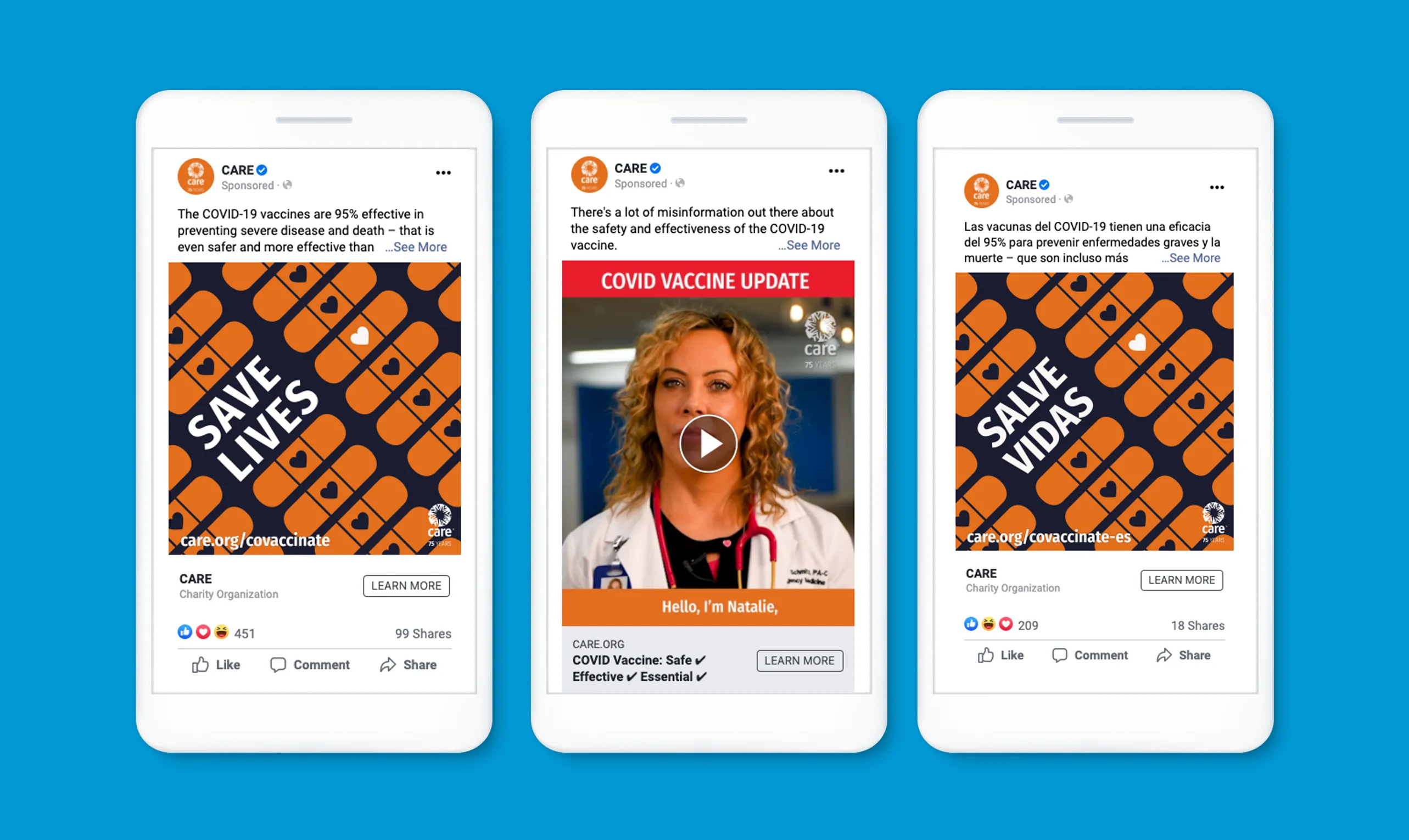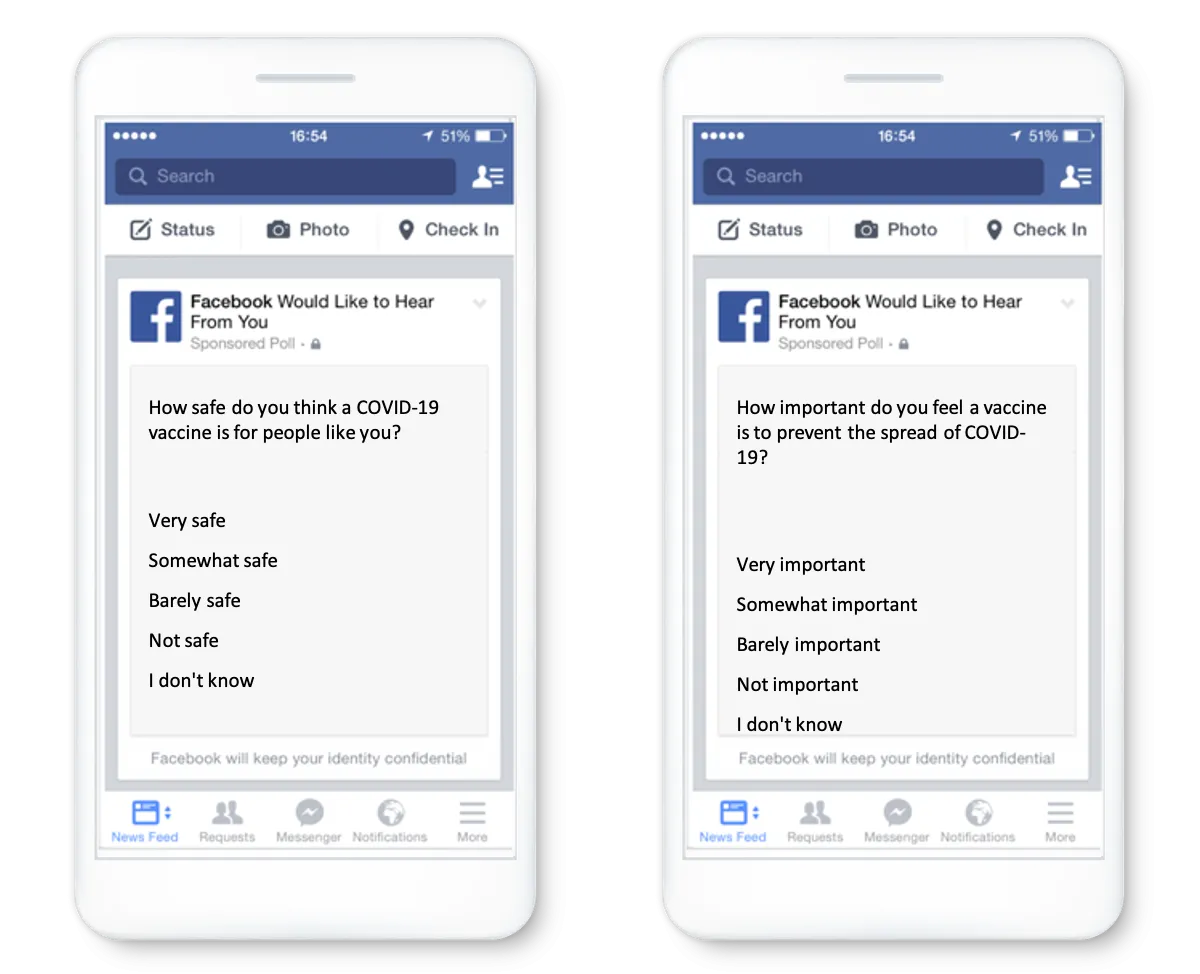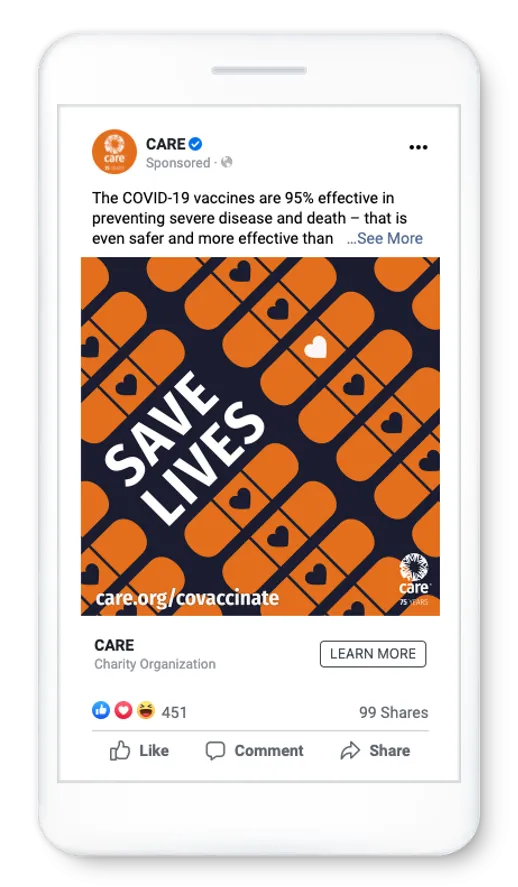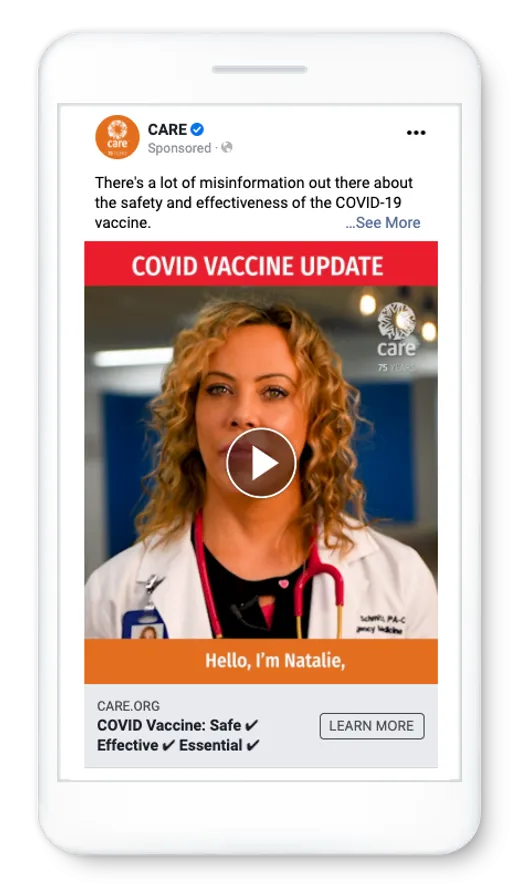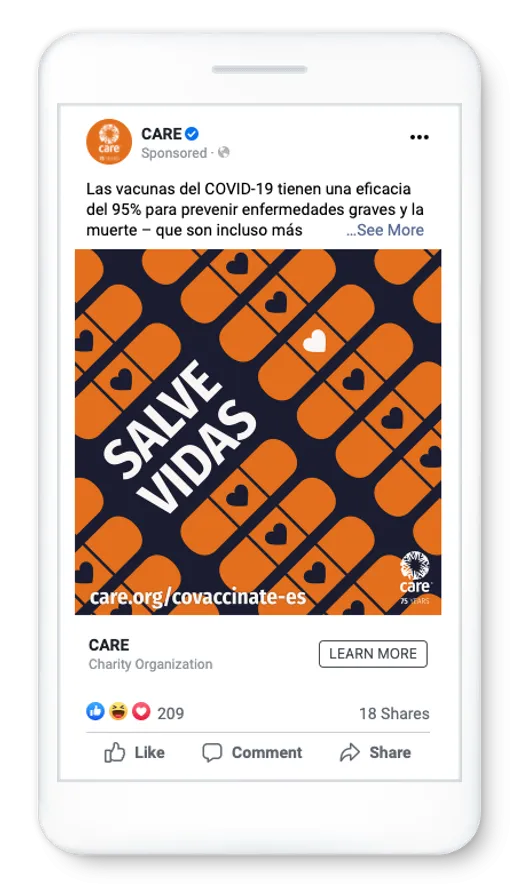Many communities have legitimate questions about the COVID-19 vaccines and are not yet ready to get a COVID-19 vaccine. CARE sought to improve our shared understanding of how to apply social and behavior change communication strategies to social media campaigns and drive positive public health outcomes on Facebook. In particular, we wanted to understand what communities want to know about COVID and the vaccines and what messaging and creative approaches work best to increase people’s willingness to get the COVID-19 vaccines.
“CARE has been at the forefront of humanitarian response and development work for 75 years in over 100 countries. At Facebook, we are lucky to have been able to support their programming over the last couple of years. It was a natural and easy decision to support their first program in the United States as part of our and CARE’s response to this unprecedented global pandemic.”
– Luchen Foster, Director of Health Partnerships at Facebook
CARE USA coordinated across 19 country teams to join Facebook workshops to learn how to create culturally-appropriate and relevant campaigns to encourage vaccine adoption. While simultaneously participating in the workshops, staff from CARE country offices also developed locally-led campaigns leveraging the best practices learned during the eight-week series. Regarding vaccine hesitancy in the U.S., CARE sought to learn a) what messages are most successful to promote COVID vaccine awareness/acceptance in states with low, medium and high vaccine hesitancy; and b) what are the differences between different age groups and between men and women. Scroll down to “Results” to see what we learned and what our campaign achieved!
From April 9th to May 7th, 2021, CARE USA ran our first campaign to learn what messaging resonates with which community group to address their questions and concerns around COVID-19 vaccines in the United States.
Best practices applied:
- CARE USA was unique in that we were the first partner in the Facebook Social and Behavioral Change Communications pilot workshop cohort to directly use the Carnegie Mellon data from the COVIDCAST map to segment and target different audiences by vaccine acceptance rates on the Facebook platform.
- CARE USA also applied the UNICEF Vaccine Messaging Guide best practice of using a trusted messenger for a specific community, a healthcare worker in this case, based on the Johns Hopkins COVID Preventative Survey data in the campaign.
- CARE USA also used comment moderation best practices after learning the hard way upon campaign launch that the politicized nature of the COVID vaccine in the US context would generate hundreds of negative/anti-vaxx comments. This comment moderation protected people from being exposure to vaccine-related misinformation.
CARE USA then developed creative featuring videos from a female physician’s assistant and still images. Three different messages were tested among the identified audiences:
- Vaccines are safe,
- Vaccines are effective, and
- Vaccines are safe and effective
Results
CARE USA ran its first ad series for three weeks, supported by a lift study to test the campaign’s efficacy in addressing concerns and changing attitudes towards the vaccine. At the campaign’s conclusion, the control group and those who experience the campaign were asked:
- How safe do you think a COVID-19 vaccine is for people like you? Target Answer(s): Very safe, Somewhat safe
- How important do you feel a vaccine is to prevent the spread of COVID-19? Target Answer(s): Very important, Somewhat important

